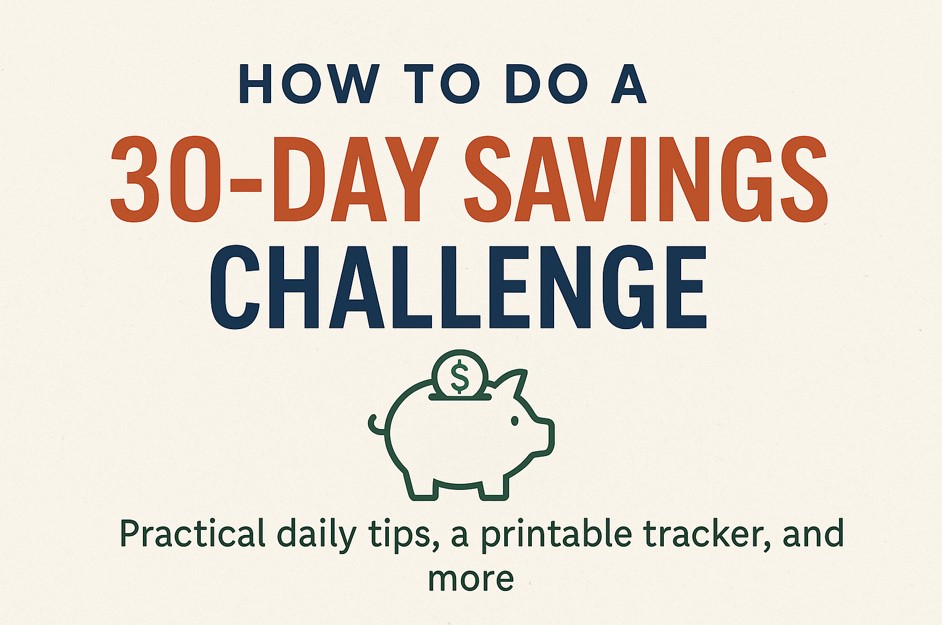The common problem of the whole world is the lack of consistency in saving money. When we look at the research in the world in general, I see that people live from salary to salary. Instead of this, you can succeed in saving with a method like this. Make a promise to yourself that every month I will allocate between 10% and 20% of my salary to savings. Limiting your monthly income in this way will lead you toward saving.
This is a method I use. Below I will explain in detail 15 Proven Ways to Save Money.
How to Save Money
Saving money seemed impossible to me at first. No matter how hard I tried, it didn’t work. Because; Every month, rent payments, grocery shopping, entertainment and social events were consuming me. In fact, what I needed to save was to take the first step, but I didn’t know how to do it. I will share with you the information I gained after many years of trial and error methods and extensive research.
I tracked every expense. I realized that especially small expenses were silently consuming my income. To get rid of these, I canceled the paid applications I used to enter a few times a month, I cooked at home instead of takeaway. I waited 72 hours for big expenses. Impulsive shopping was the most dangerous, it was hard to resist this at first. However, when you wait a few days, you realize that the product you gave up buying was really impulsive.
My approach to money has completely changed. Saving money is no longer a constraint for me. On the contrary, I see it as a precaution to protect myself in the future. This wasn’t stinginess; I felt very happy as someone who had learned to have fun with small amounts of money. Instead of going out every weekend, I invited my friends over for coffee, borrowed books, and attended free events in the city. I had gotten rid of the idea that everything in life is about money and started spending my money more wisely.
My stress about finances had started to decrease. I had created my first emergency fund. I had made great progress towards goals that were hard to achieve. It didn’t happen because of a raise or a side hustle. All I did was make consistent and conscious choices.
If you’re trying to save money and don’t know where to start, start with one habit. It might be tracking your spending, cooking more meals at home, or setting up your first automatic transfer. You don’t have to do everything at once. The momentum builds over time. And trust me—once you see what’s possible, you’ll never want to go back.
1. Track Your Spending
The golden rule of saving money is to control all spending. You can be sure that lack of control will lead you to disaster. Make a promise to yourself when you wake up in the morning and track all your spending for 30 days and at the end of the month you will see how much unnecessary spending you have been doing.
At the end of 30 days, you will see a picture of unnecessary expenses and it will be very easy to cross them off the list.
2. Create a Realistic Budget
As annoying as it may be, budgeting is the foundation of healthy finance. I would like to tell you a little story to motivate you. My close friend consistently applied the 50/30/20 rule to her life so well that after 6 months she had no financial problems.
- 50% Needs
- 30% Requests
- 20% Savings and Debt Payments
You can adjust this rule according to your personal circumstances.
3. Set Specific Savings Goals
Always be clear in this life because; Money is cowardly, and hard-earned but goes fast. Uncertainty unfortunately does not take you from point a to point b. Here’s the technique I used and it worked very well for me. “In 12 months I will save $6,000 for an emergency fund.” Setting goals like this makes you more consistent.
I know I’m repeating myself, saving is only 100% successful when it’s consistent and measurable.
4. Automate Your Savings
My good friend Isabella is crazy about automating savings. I was surprised when he told me that $5,000 was the small amount of money he directed to a mutual fund every month by automatic instruction for 1 year. The most important criterion to understand here is to think of the money to be invested as a bill payment. Don’t think that small amounts cannot accumulate, even small amounts can accumulate with stability.
5. Use the 24-Hour Rule for Purchases
Are you one of those who can’t help yourself when it comes to shopping? Impulsive buying is the number one enemy of your budget. If you really want to buy a product, follow the 24-hour rule. At the end of the day, you will realize that you don’t really need it.
The golden rule of saving and saving money is to control our impulses. With this simple rule, you can take the first step towards financial freedom.
6. Cut Recurrent Expenses
I paid $2 for this membership, I don’t think that it is a small amount and nothing will happen. Review your monthly subscriptions and cancel any you don’t really use.
- Cancel unused streaming services.
- Downgrade your phone or internet plan.
- Negotiate with service providers for lower fees.
- These recurring costs can quietly eat away at your budget.
Subscriptions renewed every month quietly eat into the budget.
7. Shop with a List (and Stick to it)
Dear followers, the biggest mistake when going grocery shopping is not using a list. Because: using a list prevents you from buying unnecessary products. Now take a pen and paper and make a list of the products you really need. In this way, going shopping with a list protects you from impulsive purchases.
Going shopping when you are hungry will also lead you to impulsive buying. Especially in the snacks and ready-to-eat food aisle, it can lead to unnecessary spending.
8. Prepare Meals and Eat at Home
Make a change this week; for one day only, don’t order takeaway food and cook it yourself at home. This will help you eat healthier and save money.
9. Buy Generic Brands
Choosing generic brands may not make you look cool. But it can save you a lot of money. The quality of the products you already buy at a lower price matches that of branded products. The best way to understand this is to buy the more affordable version of the product you buy regularly.
Compare by testing in this way; If there is no significant difference between the 2 products, it will contribute to your budget with the lower-priced product.
10. Postpone Big Purchases
If it is a large product, do not buy it without researching alternatives and comparing prices. Also, keep an eye out for seasonal sales as sometimes they can be incredible.
Don’t ignore used, refurbished products for furniture or electronics. One of the most sensible options to save money is refurbished and second-hand products.
11. Limit “Take Care of Yourself” Spending
Dear follower, saving so tightly will lead you to depression. Stop for a while and set aside a small budget for entertainment money from your monthly income to pamper yourself. Of course, do it in moderation and in moderation.
Discipline now, take a step towards freedom later.
12. Celebrate Progress (Not Perfection)
You are now a conscious individual, leaving your old wasteful ways behind. You’ve taken the first step towards big changes like saving money, consistency, and saving your first $100. This was a small step for humanity and a big step for you. I congratulate you from the bottom of my heart that you are no longer drowning in orders for dinner, but have become a self-caterer and a person who can say no to impulse purchases.

